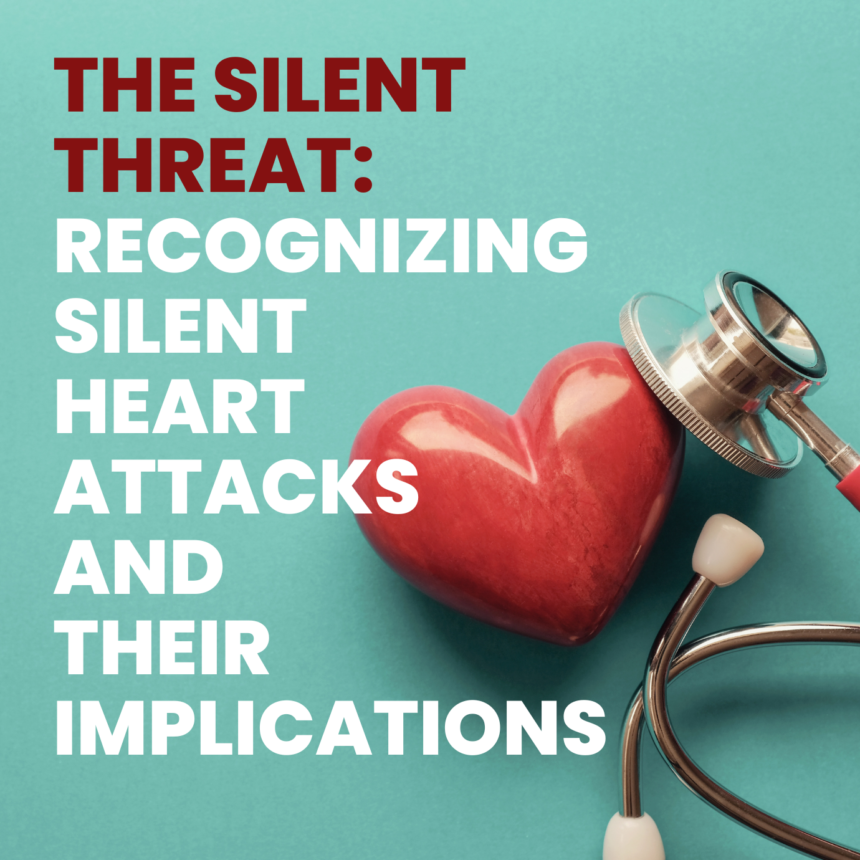Heart attacks are often associated with intense chest pain and immediate medical attention. However, there is another type of heart attack known as a silent heart attack, which occurs without the typical and noticeable symptoms. Silent heart attacks can go unnoticed or be mistaken for mild discomfort, leading to delayed medical intervention and potentially severe consequences. In this article, we will explore silent heart attacks, their implications on heart health, and how to recognize their subtle symptoms.
What is a Silent Heart Attack? A silent heart attack, also known as a silent myocardial infarction (MI), is a heart attack that occurs without the typical symptoms like severe chest pain or discomfort. Instead, the symptoms may be subtle or mistaken for other less severe conditions, leading individuals to ignore or downplay their significance.
Recognizing Silent Heart Attacks: Since silent heart attacks lack the characteristic chest pain, it is important to be vigilant and aware of other potential symptoms that may indicate a cardiac event. Here are some signs to watch out for:
- Fatigue: Unexplained fatigue or a significant decrease in energy levels, even without engaging in physically demanding activities, can be a subtle symptom of a silent heart attack.
- Mild Discomfort: Instead of severe chest pain, a silent heart attack may cause milder and more ambiguous discomfort, such as pressure, tightness, or aching in the chest area.
- Shortness of Breath: Experiencing breathlessness or difficulty breathing, especially during everyday activities or at rest, can be an indication of a silent heart attack.
- Indigestion or Nausea: Some people may mistake the symptoms of a silent heart attack for indigestion or gastrointestinal issues. Persistent indigestion, heartburn, stomach pain, or nausea that is not alleviated by typical remedies should not be ignored.
- Dizziness or Lightheadedness: Feeling dizzy or lightheaded, especially when accompanied by other symptoms like fatigue or mild discomfort, may be a sign of a silent heart attack.
- Sweating: Profuse sweating or experiencing cold sweats unrelated to physical exertion or external temperature changes can be a subtle symptom of a silent heart attack.
- Unexplained Anxiety: Feelings of anxiety, unease, or a sense of impending doom without a clear trigger can be associated with a silent heart attack.
It’s important to remember that these symptoms can vary from person to person, and some individuals may experience a combination of them. If you suspect you may be experiencing a silent heart attack or any other cardiac event, it is crucial to seek immediate medical attention.
The Implications and Importance of Recognition: Silent heart attacks are concerning because they often go undetected, leading to delayed treatment and potential complications. These heart attacks can cause damage to the heart muscle, increase the risk of subsequent heart attacks, and contribute to the development of heart failure.
Recognizing the symptoms of silent heart attacks and seeking medical attention promptly is vital for receiving appropriate care and preventing further complications. If you have risk factors for heart disease, such as a family history, high blood pressure, diabetes, or high cholesterol, it is even more crucial to be vigilant about any unusual symptoms and consult with a healthcare professional.
By understanding the concept of silent heart attacks, recognizing their subtle symptoms, and taking immediate action, you can protect your heart health and potentially prevent further damage. Regular check-ups, maintaining a healthy lifestyle, and managing risk factors are also essential in reducing the likelihood of silent heart attacks and promoting overall cardiovascular wellness.
